MercoPress. South Atlantic News Agency
Tag: Brazilean Central Bank
-
Monday, July 4th 2011 - 05:12 UTC
Brazilian government continues to subsidize loans to big corporations
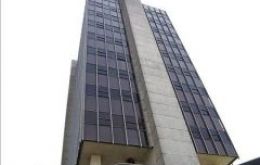
Brazil's state development bank, BNDES, is lending to companies at the lowest rate relative to the country's benchmark in two years, undercutting President Dilma Rousseff's efforts to curb inflation, revealed the Sao Paulo financial press.
-
Saturday, April 16th 2011 - 00:11 UTC
Tombini says Brazil is in the middle of a monetary tightening cycle
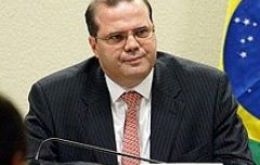
Brazil is in the middle of a monetary tightening cycle, central bank President Alexandre Tombini said on Friday, days before the bank is expected to announce a hike in the benchmark lending rate.
-
Thursday, April 7th 2011 - 18:05 UTC
In spite of latest measures, Brazil’s ‘currency war’ looks set to rumble on

If recent evidence is anything to go by, Brazil’s latest effort to stem the rise in the Real is unlikely to have a lasting impact on the markets, according to Capital Economics.
-
Friday, April 1st 2011 - 00:25 UTC
Brazil’s central bank just manages to slow the Real currency advance
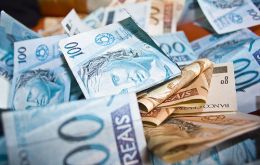
Brazil’s Real retreated from the highest level since August 2008 after the central bank intervened five times Thursday to slow the currency’s advance. The Real fell 0.2% to 1.6318 per dollar, from 1.6288 Wednesday.
-
Wednesday, March 16th 2011 - 14:55 UTC
Economists downgrade Brazilian 2011 growth to 4.1%; government insists 5%
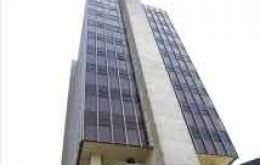
The Brazilian government said GDP is expected to grow by more than 5% a year through 2014. The Finance Ministry says in a release argued that increased long term investments by the private sector will be fundamental in achieving the projected growth.
-
Thursday, March 10th 2011 - 22:32 UTC
Massive inflow of foreign capital into Brazil during first two months of 2011

The inflow of US dollars to Brazil so far this year (Jan-March 4) marks a surplus of 24.3 billion USD over outflows, which helped to further appreciate the Brazilian Real, according to the latest figures released by the Central Bank.
-
Thursday, March 10th 2011 - 20:16 UTC
Brazilian markets expect further tightening to bring inflation to target
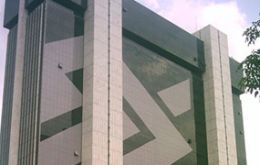
Brazil's central bank said Thursday it remained cautious about the outlook for prices due to uncertainties in the global economy, and hinted that more than just interest rates may be needed to bring inflation back into line with targets.
-
Thursday, March 3rd 2011 - 18:54 UTC
Brazil’s basic interest rate forecasted to increase 50 points to 12.25% in April

Brazil Wednesday central bank decision to raise interest rates by 50bps to 11.75% was widely expected but significant for two reasons, according to a report from Capital Economics .
-
Thursday, March 3rd 2011 - 06:19 UTC
Fearing overheated economy Brazil raises basic interest rate 50 points to 11.75%

Brazil’s Central bank on Wednesday raised its benchmark overnight rate by a half-point for a second straight meeting to cool inflation that is approaching the upper limit of the government’s target range.
-
Wednesday, February 23rd 2011 - 06:33 UTC
Brazil’s top private banker denies any risk of a credit bubble in the country
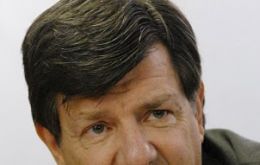
The president of Brazil’s private bank Itau brushed aside risks of a credit bubble in the country and underlined that sustained economic growth will be rewarded by an expansion of between 15% and 20% in its credit portfolios in 2011.
